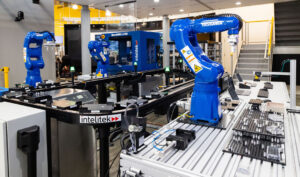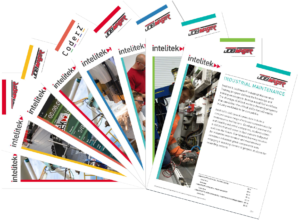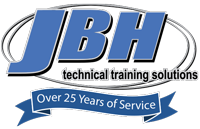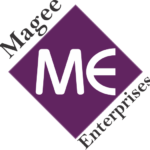Industry certifications are a significant part of career and technical education (CTE). They provide more value for students, and they validate to employers that the recipient has the skills needed to be successful.
The process of earning an industry certification gives students practical, real-world experience in their chosen career field. Industry certifications also demonstrate that students have mastered the skills and knowledge required in a specialized area. This makes students more marketable in what is often a highly competitive workforce, giving them a leg up when it comes to getting a job after graduation.
Students typically obtain industry certifications by passing specific industry-related exams. There are many types of industry certifications and credentials available. For example, within the manufacturing field, students can receive certifications from groups such as the American Society for Quality (ASQ), the Manufacturing Skill Standards Council (MSSC), the National Institute for Metalworking Skills (NIMS), and more.
However, not all industry certifications have the same value or level of quality. When choosing which industry certifications to align your CTE programs with, here are four important qualities to look for.
Is the certification widely recognized within the industry?
Industry certifications are of most value when they’re well-designed, reflect actual competencies that employers are looking for, and are widely recognized by employers in that field. If companies aren’t familiar with a certain credential or certifying body, then that credential isn’t going to have the same impact for students—and it isn’t going to be held in the same regard by employers.
Is it universal rather than vendor-specific?
Many companies have developed industry certifications around their particular products or business processes. These programs prepare students for a very specific industry scenario. While these credentials might hold a lot of value in certain cases, they aren’t as widely applicable as a certification from an independent credentialing body. An independent certification can be applied more generally to a wide range of industry scenarios and makes students more versatile to employers.
Is the credential delivered by an independent testing body?
To ensure that the credential and certificate are authentic, the evaluation process should be implemented by an organization or system that is independent from the school or company offering the certification. These independent organizations will ensure the student testing is both rigorous and legitimate. Leaders in this space like NIMS have online databases for employers to access and validate the credentials.
Does it include actual performance measures and not just a written test?
Many industry certifications validate students’ knowledge and skills with a written exam. However, CTE’s biggest strength is the practical, hands-on experience that students receive in a given career field. These hands-on knowledge and skills are demonstrated most effectively through authentic performance tasks and projects rather than just a multiple choice test.
Smart Credentialing
At Intelitek, we’ve aligned our CTE curriculum products for manufacturing with NIMS industry certifications because NIMS is a completely independent, yet internationally recognized credentialling body. What’s more, NIMS is at the forefront of industry certification. The organization has created what it calls “smart credentialing”, it’s role-focused certification, rather than just a test of someone’s knowledge. There is a hands-on component called a Performance Measure, that is very flexible. It can be defined by either schools or employers to match the role they want students to be prepared for.
If students are learning how to install a motor, for example, one factory might use AC motors and another might use DC motors. Schools and employers can define their NIMS hands-on performance measures to align with their specific needs—in this case, either AC or DC.
You can learn more about NIMS Smart Credentials here, and you can explore our NIMS-aligned Industry 4.0 manufacturing curriculum solutions here.























